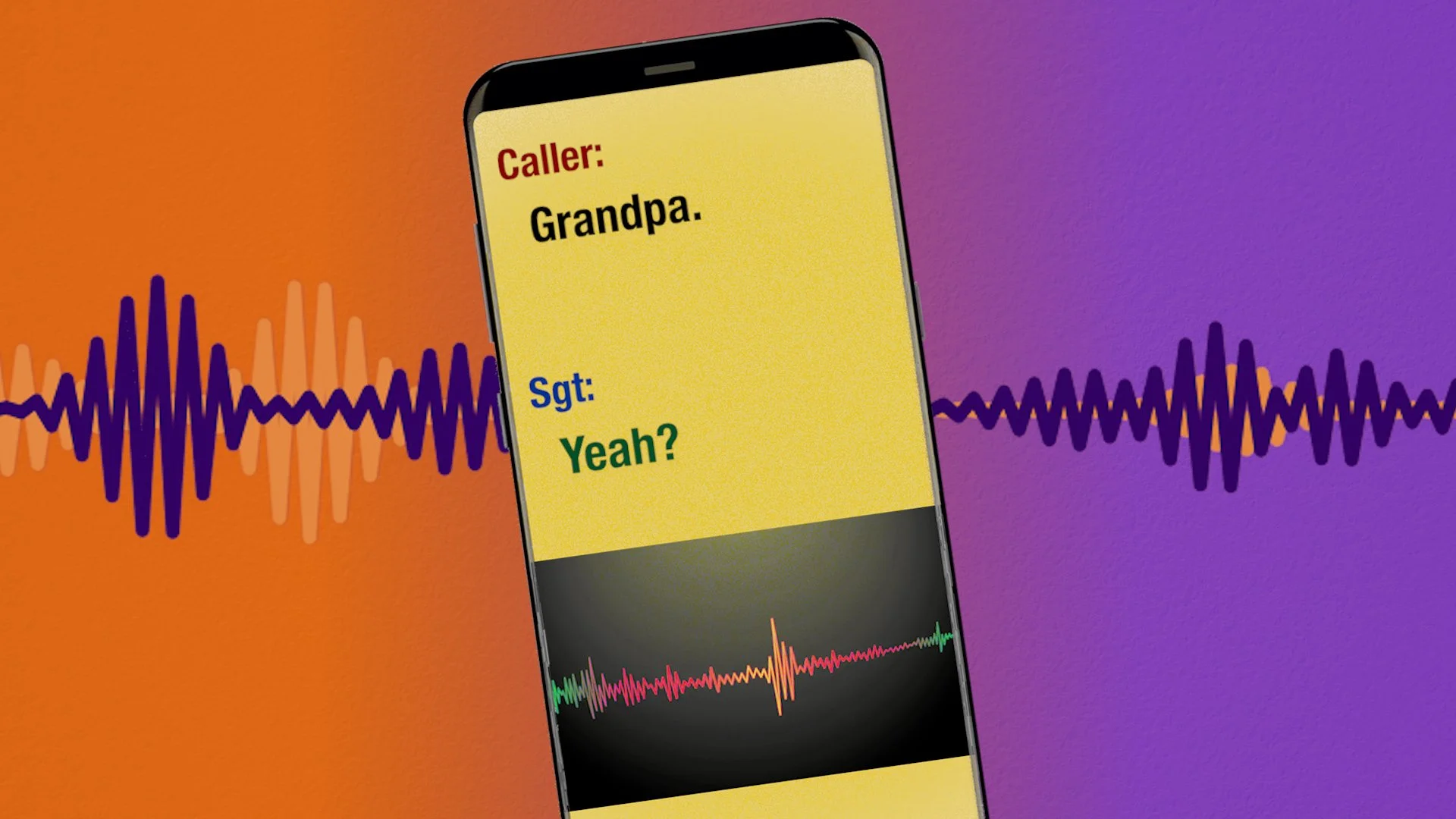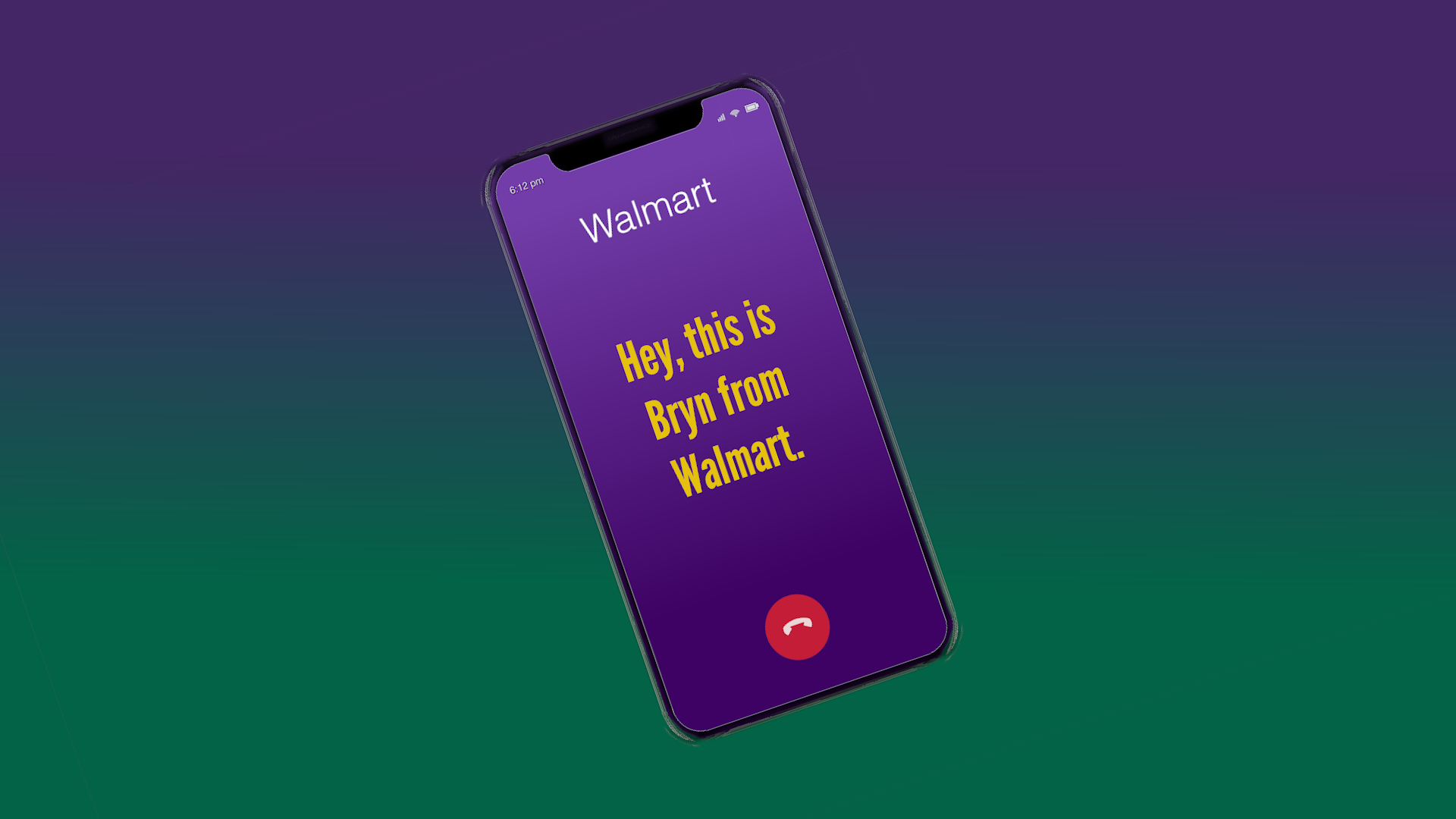Would you fall for this deepfake scam call?
BY KERRY TOMLINSON, AMPERE NEWS
Human or AI? That's the question we'll need to ask ourselves when the phone rings. Criminals are using artificial intelligence to create fakes voices of our loved ones and trick us out of money.
Now, you can hear one of these deepfake calls for yourself. A police officer managed to record the call and captured AI in action.
Watch here:
"I need your help"
Sgt. Joel Lewis of the Scottsdale Police Department in Arizona does have grandkids. But they're very young.
So, when he got a call from a young man who claimed to be his grandchild but sounded like he was in high school or college, he knew it was fake.
CALLER: Grandpa.
LEWIS: Yeah.
CALLER: You do know this is, right?
LEWIS: Yeah. Are you okay?
He decided to record it, capturing the work of a criminal --- and a pretty good actor, he thought. But Lewis got far more than he imagined.
Panic
The caller's tone changed.
CALLER: I had a terrible car accident. I was rushed down to the hospital. I've been treated. But the lady in the other vehicle, she told the officers that I took the red light.
LEWIS: Okay.
CALLER: They're charging me for reckless endangerment. I need your help.
"The pattern and the speed and the tone and the timbre. It sounds panicky. So, how would I react to that as a grandfather?" asked Lewis in an interview with Ampere News. "Respond. I need to help."
But this caller is not human. We ran the recording through an online test tool called the Deepfake-o-meter.
The results? A rating of about 90% false, meaning a very low chance that it could be a real person. Telltale signs like pronunciation and cadence also give it away as computer-generated.
“Can’t be AI”
"Frankly, I'm just, I'm stunned," Lewis responded. "Up until today, I was thinking, 'No, can't, can't be AI."
"[If] you grew up watching 'Lost in Space,' which I did, where it's just the robot and it sounds like a robot, that's what my brain is thinking," explained Lewis.
In the 1960's TV series, a B-9 environmental control robot accompanies the family, complete with blinking lights, floppy tube arms, and mechanical responses like, "Insufficient data."
"So, the interaction that you have with a human being is entirely --- well, used to be entirely different," Lewis said.
Sad Robot
The call continued with the computerized caller sounding more and more emotional, at times, almost tearful.
"If I wasn't such a professional skeptic, if my grandkids were a lot older, I could have, I certainly would have had the adrenaline dump of 'there's an emergency,'" Lewis said. "I would have bet 100 bucks it was not AI."
CALLER: I was interviewed by a court appointed attorney. His name is [name redacted by police] and his contact number is [number redacted by police].
LEWIS: Okay.
CALLER: He also gave me a case number. He says I'm arraigned to see the judge in about two hours.
LEWIS: Okay.
CALLER: And I have a bail pending. It's just a cash bail. I haven't told mom anything about it. I'm just very embarrassed. Promise me you'll keep it between us, okay?
What follows is usually a plea to call the "court-appointed attorney," who is really just another character in the scam. After you pay "bail," you'll likely start getting more requests for money.
"They'll do the first sales pitch," Lewis said. "'Hey, it's only $650. And then they come up to the next one. And the next one. By the time they're done, it's 10 grand."
Deflection
Lewis notes some of the criminal's tricks to deflect doubt:
Heavy emotion to catch you off guard, make you panic, too, and distract you from a possible scam.
He hints that he's in jail, which would explain why he's not using his own phone.
He mentions a trip to the hospital, an explanation for why he might not sound like your real grandchild.
"If I said, 'Well, you don't call me 'Grandpa,'" Lewis explained. "'Well, I've had a head injury.' If you throw out an objection, they've already scripted for that."
"The fact that now that I know this is AI, wow, that's even more impressive,'" Lewis added. "And scary."
How they do it
This kind of scam call is popular with criminals, according to Brian McDonald of voice security company Mutare.
"That's the big one. And that's the one where people are just getting scammed left and right," he said.
The attackers get the voices of family members from social media, he explained. They also use social media to find their targets, often families with high school or college-age children. They look for a time when you're apart, then call with the disguised voice, using easy-to-access tools.
"These are all free tools they can get on the Internet, through apps, through websites," McDonald said. "These are very simple things."
Less human than human
There is technology that can help detect AI with varying degrees of success.
Some systems, for example, check to see if a real person's body could make the AI voice you hear.
"There are certain sounds that are impossible for a human to create," said Manel Terraza of voice security company Loccus AI in an interview with Ampere News.
He held up his hands about 20" inches apart, indicating a human neck of improbable size.
"There are certain sounds, that maybe you need to have, let's say, a neck like this to be able to do," he said. "It's at this level of things that we look at."
What to do
Some banks and call centers use these kinds of technologies to check incoming calls. But people at home only have their ears, at least for now.
Luckily, there are things you can do.
Now that we can't completely rely on our eyes and ears, we have to look at the message itself. Are there any red flags?
Lewis found plenty in his call, including:
"Grandpa. You know who this is, right?"
The caller tries to guilt you into saying you recognize him, even if the voice sounds a little off to you. "You do know your own grandchild, don't you, Grandpa?" he hints. “You're not starting to get a little forgetful, are you, Grandpa?"
2. "He says I'm arranged to see the judge in about two hours."
The caller creates time pressure by saying he's going to go before a judge. In some cases, the scammers add that the judge will grant them leniency if they pay bail quickly, piling on more pressure.
3. "And I have a bail pending. It's just a cash bail."
The caller brings up a money issue. To decrease suspicion, he says it's not for him, but for the courts.
4. "I haven't told mom anything about it. I'm just very embarrassed. Promise me you'll keep it between us, okay?"
The caller asks you to keep it confidential. Scammers know if you talk to someone else about it, that person might flag the matter as suspicious, and in explaining it, you may notice the red flags yourself.
Other ways to prepare
You can come up with a family question or password to help verify who you're talking to. Using pet's names or other facts that you discuss openly or on social media are not good passcodes because they're easy for attackers to find or guess.
Also, have someone contact your loved one separately to see if the call is real.
Lewis recommends you become a professional skeptic as well. Question what comes your way on the phone, text message, email, or social media, because the future is here.
Ask yourself:
"What does this person or message want me to do?"
"Could it hurt me or others?"
"Can I verify this independently?"
If not, don't do it.
The Last Goodbye
At the end of the call, Lewis asked the robotized scammer a question.
LEWIS: When you first called, did you hear how I answered? Scottsdale Police Department.
CALLER: (Hangs up) (beep beep beep)
A cutting-edge conversation in this new world of easy-access AI.
"I probably got sliced on the cutting edge," Lewis said with a chuckle. "I don't feel bad about it. Because to me, it's all learning."
ALSO IN THE NEWS:
MORE FROM AMPERE NEWS









